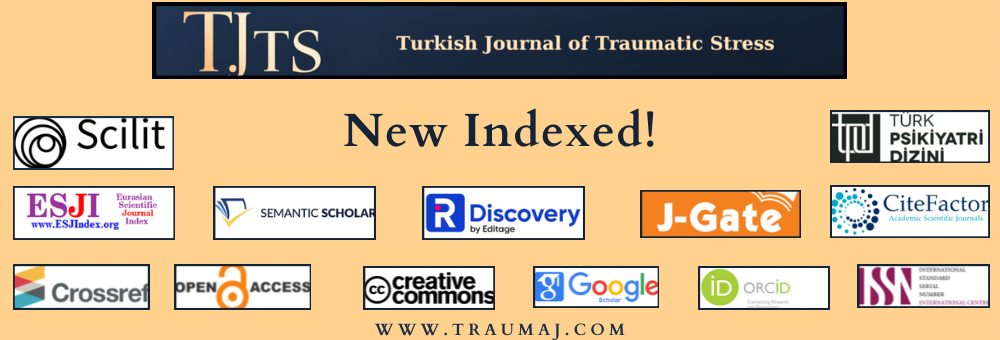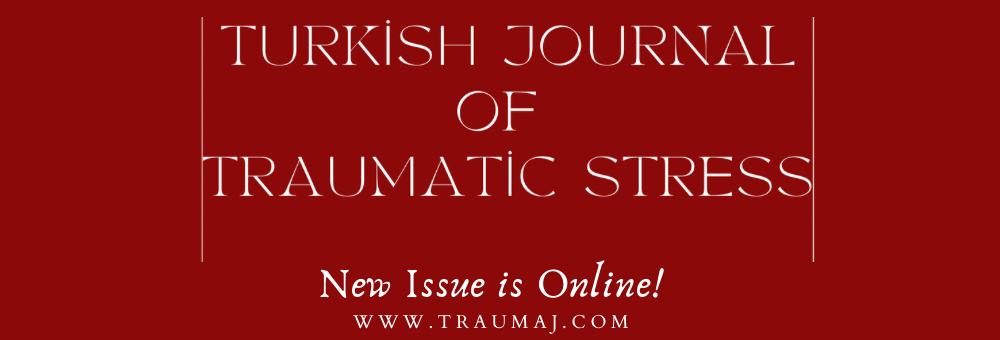We are proud to share that the Turkish Journal of Traumatic Stress has recently been indexed in several prestigious academic databases.

This achievement reflects our commitment to scientific excellence and our growing recognition in the field of trauma and mental health. Being indexed in these platforms increases the visibility and accessibility of the high-quality research we publish.
We thank our authors, reviewers, and editorial board for their valuable contributions.
Explore our new index listings below and stay connected with the latest advancements in trauma research.






